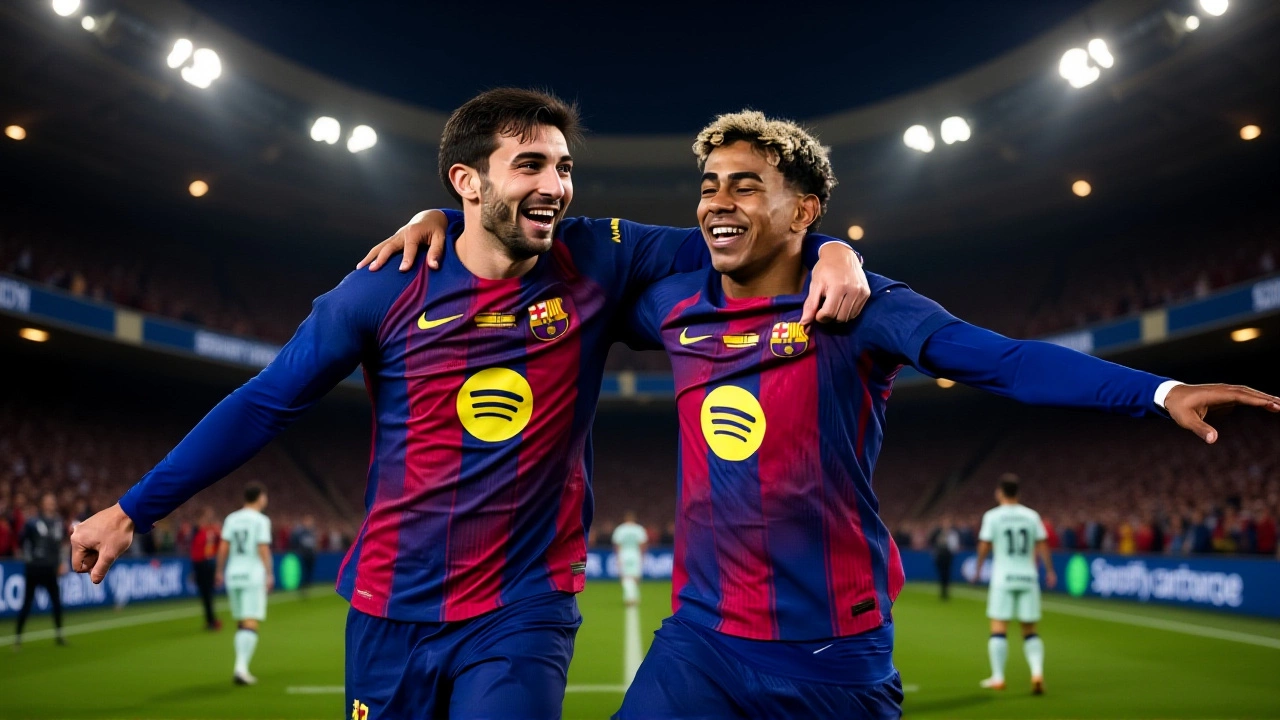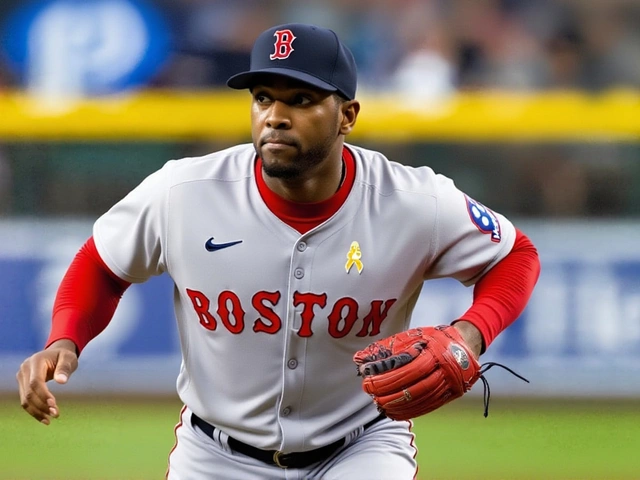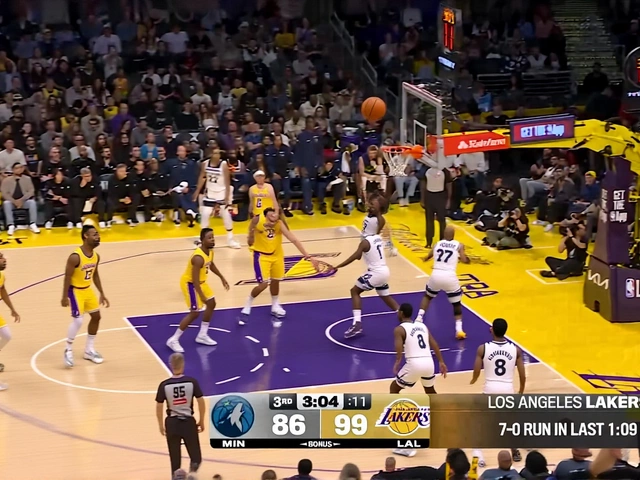On Saturday, November 22, 2025, at 16:15 CET, FC Barcelona will finally step back onto the pitch at the Spotify Camp Nou — ending a 906-day exile that began after their last match in May 2023. The return isn’t just a game; it’s a cultural reset, a long-awaited homecoming for a club whose identity is stitched into the very bricks of its legendary stadium. The occasion? A La Liga clash against Athletic Club, but the atmosphere? Pure, unfiltered emotion. Fans are flooding the streets of Barcelona hours before kickoff, many wearing red-and-blue scarves, some with tears in their eyes. The club’s president, Joan Laporta, called it "an architectural jewel that will be the best in the world," adding that it feels like "going back to the future." And for once, the hype isn’t just marketing — it’s earned.
The Long Wait: Why It Took Over Two Years
The original plan was simple: celebrate the club’s 125th anniversary in November 2024 with a fully reopened Camp Nou. But construction delays, bureaucratic hurdles, and the sheer scale of the Espai Barca project pushed everything back. Sky Sports reported that "building delays and numerous issues dragged out the process," forcing the club to play home matches at the Estadi Olímpic Lluís Companys and even one at Wembley Stadium in London. Financially, the toll was brutal. With no matchday revenue from their own ground, Barcelona’s 2025/26 budget had to be rebuilt from scratch — relying on sponsorships, player sales, and creative financing just to stay afloat. "It’s been extremely costly," acknowledged Sky Sports, "and the club has had to work hard and creatively to manage its finances during the process."Phase 1B: A Glimpse of the Future
Saturday’s match marks the debut of Phase 1B of the Espai Barca overhaul, granting the stadium an occupancy license for 45,401 spectators — up from the 28,000 allowed in Phase 1A. That’s still less than half the final target of over 105,000, but it’s a massive leap forward. The renovated Tribune and South Goal areas are now fully modernized, with improved sightlines, better accessibility, and upgraded concessions. The most visible change? The new seating color scheme — a seamless blend of traditional blue and red that feels like the old Camp Nou, but sharper, cleaner, more alive. The architectural team — Nikken Sekkei, IDOM, and b720 — have spent years refining the design to honor the stadium’s soul while integrating modern sustainability. Euronews confirmed that future phases will include a 360° roof lined with photovoltaic panels, energy-harvesting systems, and a complete overhaul of the fan experience through interactive zones, expanded gastronomic areas, and a fully reimagined museum embedded into the structure.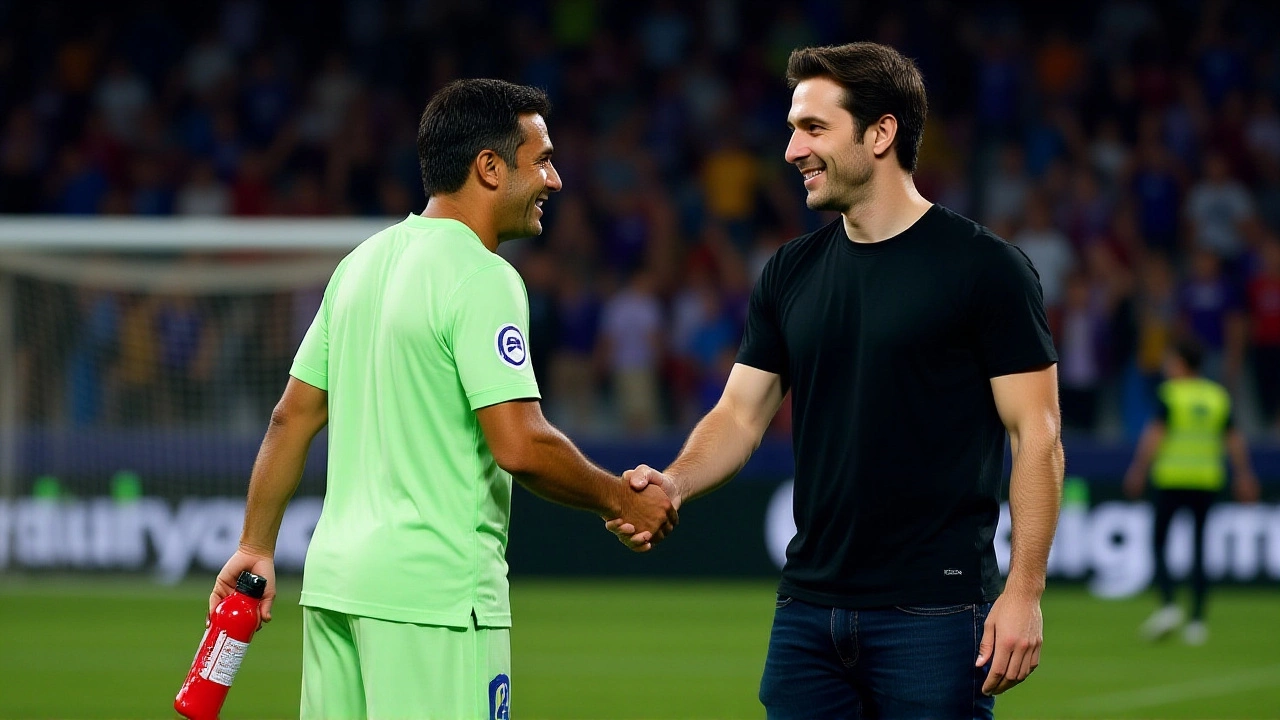
The Celebration: Music, Fire, and a Mystery Kick-Off
This isn’t just football. It’s a Catalan festival. Doors open at 14:15 CET, and the first sounds will be the beats of Mon DJ, spinning for the early arrivals. At 16:00 CET — 15 minutes before kickoff — the Cor Jove de l'Orfeó Català will launch into the Cant del Barça, accompanied by a pyrotechnic display synchronized to every note. Then, Figa Flawas, one of Catalonia’s most beloved contemporary music groups, will take the stage. Halftime brings another surprise: The Tyets, who’ve performed at previous first-team games, will return to keep the energy alive. But the biggest mystery? The honorary kick-off. MARCA called it "the best-kept secret of the day." The club has refused to reveal who will take that first touch at the new Camp Nou. Speculation runs wild — from legendary players like Xavi or Iniesta to young academy graduates, or even a local child who lost a parent during the pandemic. Whoever it is, they’ll be stepping onto hallowed ground — and into history.What’s Next? Champions League, Full Capacity, and the Real Test
Barcelona has already announced that their UEFA Champions League match against Eintracht Frankfurt on December 9, 2025, will also be held at the Spotify Camp Nou — pending final safety checks. That’s a crucial milestone. If the stadium passes UEFA’s inspection, it signals that Phase 1B is not just a temporary fix, but a viable, long-term home. But here’s the catch: season ticket holders remain suspended until full capacity returns. That’s a bitter pill for loyal fans who’ve paid for decades of access, only to be told their rights are on hold. "It’s not fair," said Lluís Mora, a 62-year-old season ticket holder since 1983. "We didn’t ask for delays. We just wanted to watch our team where we’ve always watched it." The club says the upper tiers — the iconic, steeply angled sections that gave Camp Nou its roar — are still under construction. They’ll be added gradually, with the final phase aiming to make it Europe’s largest stadium. That’s the dream. But the real test isn’t capacity. It’s whether the magic survives the modernization. Will the new seats echo the same chants? Will the air still carry the scent of grilled chorizo and the sound of 100,000 voices singing as one?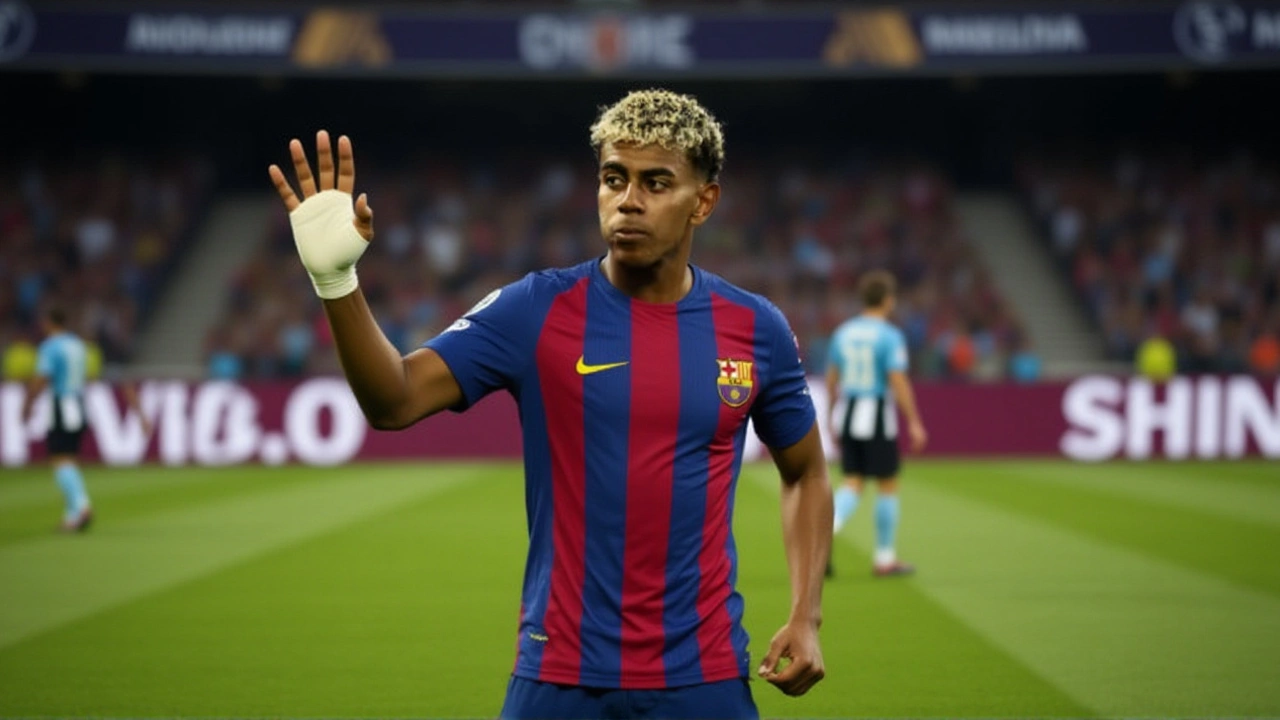
Why This Matters Beyond Football
For Barcelona, this isn’t just about football. It’s about identity. The Camp Nou has been the city’s heartbeat since 1957 — a place where Catalan pride, global fandom, and working-class passion collided. During the pandemic and the long renovation, that connection frayed. Fans missed rituals: the pre-match walk through the tunnel, the shared silence before kickoff, the way the crowd swayed as one. Returning to the stadium isn’t about seats or screens. It’s about reclaiming a piece of who they are. And for a club that’s been through financial chaos, managerial upheaval, and fan disillusionment, this moment is a lifeline. If the fans show up — in numbers, in color, in song — it proves the soul of Barça is still beating. And that’s worth more than any trophy.Frequently Asked Questions
Why is the capacity only 45,401 for now, and not the full 105,000?
The current capacity reflects Phase 1B of the Espai Barca project, which only completed the Tribune and South Goal areas. The upper tiers — which account for the majority of the final 105,000-seat capacity — are still under construction. Full capacity won’t return until all phases are complete, likely not before 2027. Until then, season ticket holders remain suspended to ensure safety and compliance with stadium regulations.
Who is responsible for designing the new Spotify Camp Nou?
The architectural redesign is led by three firms: Nikken Sekkei, IDOM, and b720. They’ve worked closely with FC Barcelona to preserve the stadium’s historic character while integrating modern sustainability features like solar panels, energy-efficient lighting, and smart crowd-flow systems.
Will the Champions League match against Eintracht Frankfurt definitely be played at Spotify Camp Nou?
Barcelona has officially announced the match for December 9, 2025, at the Spotify Camp Nou, but UEFA still needs to grant final approval. The stadium must pass a rigorous safety and infrastructure inspection, particularly regarding emergency exits, media facilities, and VIP access. If approved, it will be the first Champions League game played at the renovated stadium.
Why are season ticket holders suspended, and when will they be reinstated?
Season ticket holders remain suspended because the stadium is operating at partial capacity, and the club cannot guarantee consistent access for all holders under current conditions. The suspension will be lifted only when the stadium reaches full capacity, expected after the completion of the upper tiers. FC Barcelona has promised to prioritize existing ticket holders for the full-capacity season, but exact timelines remain tied to construction progress.
What’s the significance of the ceremonial kick-off person?
The honorary kick-off is traditionally reserved for someone who embodies the club’s values — a legend, a community hero, or a symbol of resilience. Given the pandemic’s impact and the club’s financial struggles, this person could be a healthcare worker, a youth academy graduate, or even a fan who waited over 900 days for this moment. The secrecy adds emotional weight; whoever it is, their presence will connect the past to the future.
How does the new Spotify Camp Nou compare to other major European stadiums?
Once fully completed, the Spotify Camp Nou will surpass the Estadio Santiago Bernabéu and Wembley Stadium in capacity, becoming Europe’s largest. Its 360° roof with photovoltaic panels and integrated fan zones make it one of the most technologically advanced stadiums ever built. Unlike older venues, it’s designed as a year-round community hub — not just a football ground.
